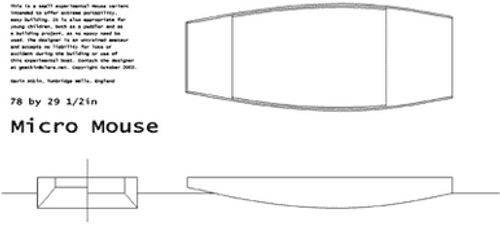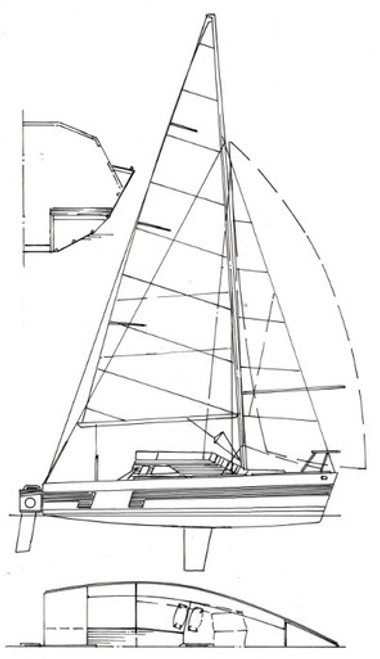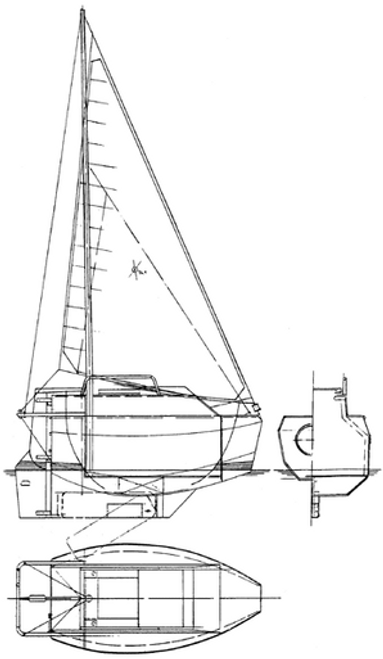Free plans. To download the file, click HERE
I've had a number of requests for a still smaller Mouse, and the Micro Mouse is it! However, I also wanted to create a official Mouse with a flat bottom and curved sides for, although the straight-sided, flat-bottomed Mouse boats work surprisingly well, I think their looks may well put off some potential builders. I don't think the curved sides add all that much extra work just two curved plots to create the bottom and a few straight bevels to the frames.
I had chine logs in mind when drawing up Micro Mouse because experience has taught me that even quite young children of eight or nine can enjoy playing a part in building a boat of that kind - under close supervision I've found they can plot coordinates, cut framing lumber, and drive galvanised nails into pre-drilled holes. However, I see no reason why people should not stitch and glue Micro Mouse if they prefer. I'd suggest, though, that epoxy is probably not a suitable material for children to work with.
I think Micro Mouse could be build in a variety of ways one might set up the frames on a rigid base, trim them to accept the sides and internal chine logs; another would be to build her sharpie-skiff style by attaching the sides to a temporary 29 1/2 in central frame, then adding the bows and stern transoms, and then the pre-measured frames (not forgetting to cut slots in the frames to accept the chine logs of course!).
Naturally, the usual Mouse principle applies to the decks and gunwales. First fasten and glue the half-inch inner gunwales, then use the hull itself to mark the shape required for the decks, then cut out and fasten and glue the decks, and then, finally, add half-inch outer gunwales to cover the ply edge.
For extreme lightness, I think Micro Mouse might profitably be built in 1/8in ply and covered in epoxy glass, and that if material of this thickness is used external chine logs may be practical.
One last point Micro Mouse will need a skeg, and it's not yet clear to me how large it will have to be - except to say that it should be quite large. To make it, I would create a half-inch wide slot using two half-inch strips of timber fastened to the aft bottom, and then I'd cut and fit a skeg to fit snugly in the slot before fastening and glueing it into place. If 1/8in material is used for the hull, the hull material in way of the keel should be doubled up once or twice to shore it up.
Gavin
PS If anyone's interested in building this boat, talking with other builders for advice and support, the Yahoo group Mouseboats is a lively and friendly source of information and inspiration







